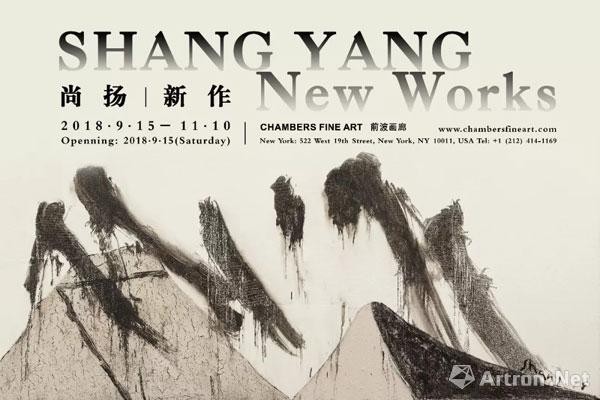
前波画廊于2018年9月15日和16日分别在位于曼哈顿切尔西的画廊空间和位于纽约上州的展览空间“艺田”推出了尚扬的最新个展。本次展览是艺术家在其职业生涯中的第四次个展,由前波画廊学术顾问唐冠科博士(Dr. John Tancock)担任策展人,被Artnet艺术新闻评为当周纽约艺术圈不可错过的17个展览之一。SINOVISION美国中文电视对《尚扬:新作》进行了全面报道并采访了策展人唐冠科,此次报道将在9月25日晚上7点全球播出,敬请关注。
在纽约切尔西的空间,9月15日下午2点展览准时开幕。著名艺术史学家、理论家、艺评家、策展人、印象派大师卡米耶·毕沙罗(Camille Pissarro)的曾孙Joachim Pissarro;前中美商会会长、著名东亚艺术学者孟克文(Christian Murck);费城美术馆中国艺术部策展人Hiromi Kinoshita;著名艺术评论家、策展人Barbara Pollack;American Friends of the Shanghai Museum创始人、艺术赞助人Patty Pei;前纽约亚洲协会美术馆艺术发展部主管Masako Shiba;众多尚扬老师的朋友和学生均莅临开幕式现场。



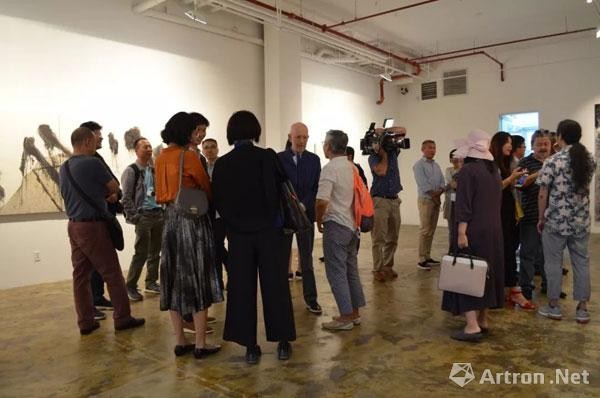
该空间共展出了八件近作,其中包括一件布面立轴;五件暗示着当下文明正不断衰落的坏书,即《坏书-文学》、《坏书-历史》、《坏书-哲学》、《坏书-逻辑》、《坏书-政治》;以及两件对日益严峻的环境问题进行深刻反思的《坏山水No.2》和《坏山水No.3》,这两件作品中精湛的绘画技艺与精心计划的拼贴元素特征鲜明,所传达的主题也十分明确——数千年来,山水及其所代表的一切一直是最重要的绘画主题,然而现今它已被人类的贪婪和傲慢所破坏。
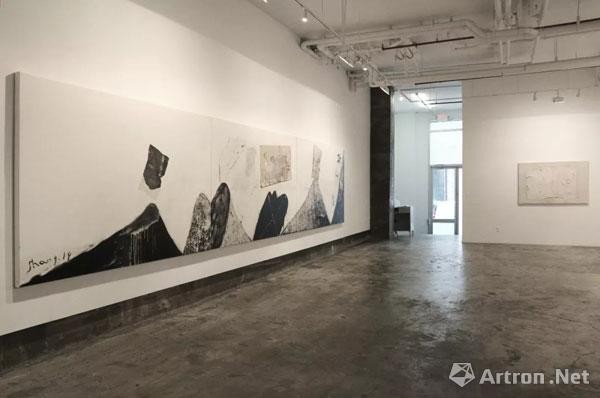
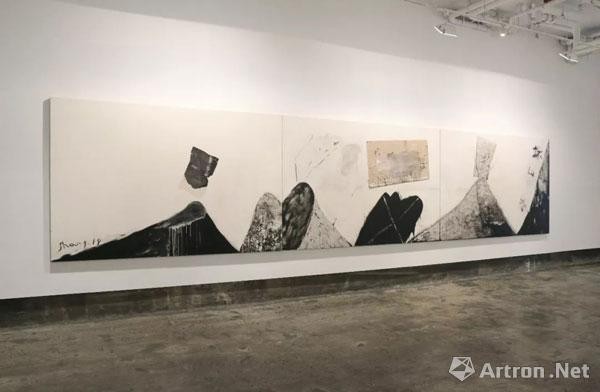

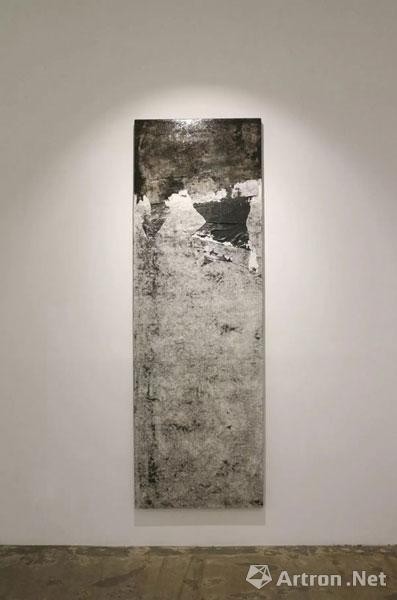

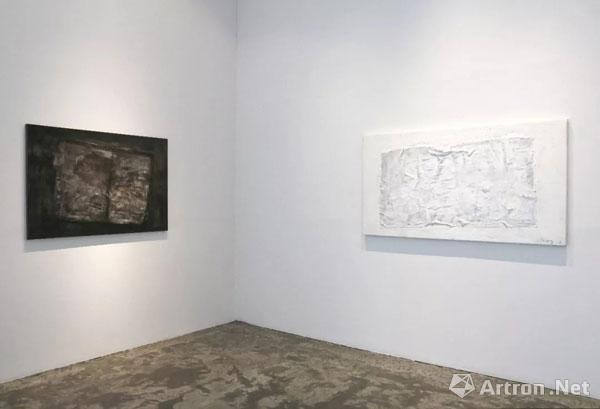
切尔西空间展览现场
在仅接受预约参观的艺田空间,9月16日展览开幕当天著名艺术家贾斯培·琼斯(Jasper Johns)和泰瑞·温特斯(Terry Winters);著名艺术设计师、建筑师Bill Katz;艺术家,普洛文斯顿艺术中心主席Ted Chapin;普洛文斯顿艺术中心行政理事Michael Roberts;康乃尔大学美术馆亚洲艺术策展人Ellen Avril;丹佛美术馆现当代艺术策展人Rebecca R.Hart;曼荷莲学院美术馆馆长Tricia Y.Paik;史密斯学院美术馆亚洲艺术部策展人Yao Wu;瓦萨学院艺术系教授Jin Xu;波士顿美术馆亚洲部主任Christina Yu Yu;纽约蓝理捷古董商主理人James Lally;纽约苏富比拍卖行法律顾问Jo Laird;投资管理机构路博迈艺术部主管,纽约大学教授Michael Danoof;大都会美术馆赞助人Diane Schafer;艺术评论家,ARTnews作者Richard Vine;纽约On Stellar Rays画廊主Candice Madey;纽约Cristina Grajales画廊主Cristina Grajales和Isabelle Kirshner;Carosso LLC Fine Arts主席Alejandro Carosso;视觉艺术家,作家Colin Edgington;艺术撰稿人,美术馆顾问 Jason Edward Kaufman;温斯顿艺术集团经理Kimball Higgs;《奥普拉时尚女性》杂志主编Lucy Kaylin;雕塑家Peter Dudek;心理学家,生物伦理学家,哥伦比亚大学心理学教授,生物伦理科学学院研究生院主任Robert Klitzman;美国亚洲艺术档案馆档案经理Hilary Chasse;罗斯柴尔德有限责任公司总经理Jan Rothschild;艺术咨询创始人Megan Connolly;OCAT深圳馆馆长、理事会理事栾倩;艺术家林延;纽约大学美术馆策展人朝伦·巴特尔均出席现场。

Jasper Johns与Bill Katz参观艺术家尚扬的作品

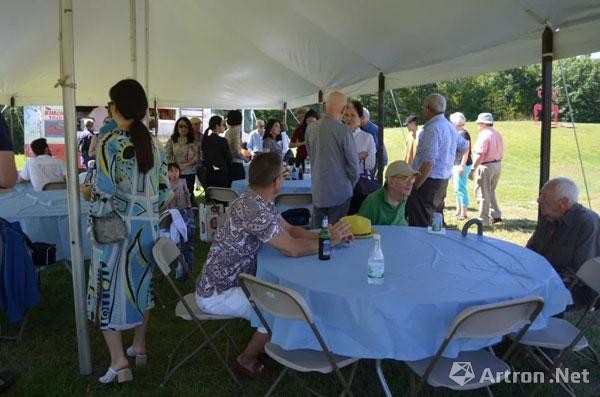
现场进行交流
在艺田展出的作品中,尚扬不仅抛开了山和书的基本形态,也放弃了架上绘画以及在平面上运用颜料或其它材料。这个空间的展览存在一个统一的概念“白内障”,这是一种随着年龄的增长而导致许多人视力模糊的疾病,尚扬以此暗喻了被塑料化现状包裹着而永远都无法接触事实的当下生活。
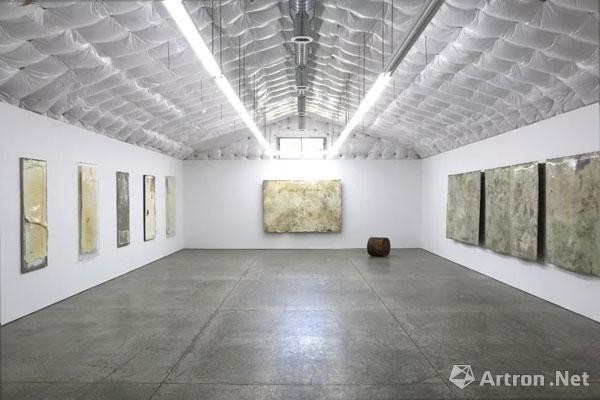

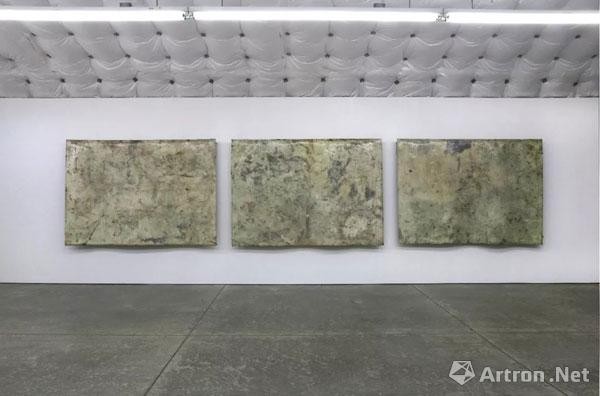
艺田空间展览现场
尚扬在中国广为人知,并备受同龄人和年轻一代艺术家的尊重,但目前在国际上尚远未达到其应有的知名度。此次尚扬的绘画和装置展览附有一套完整的图录,其中包括唐冠科和汪民安的文章以及唐冠科和茅为清对尚扬的采访,以便为人们深入理解这些作品提供必要的背景信息。
Shang Yang: New Works has opened at Chambers Fine Art in Chelsea and at ArtFarm, Salt Point, New York on September 15 and September 16. This exhibition, curated by Dr. John Tancock, is the fourth solo-show in the artist's long career. It was picked as one of the 17 Things Not to Miss in New York's Art This Week on Artnet news. SINOVISION's English Channel also reported the show and interviewed Dr. John Tancock, which will be aired worldwide at 7pm on September 25.
In Chelsea, the opening began at 2pm on September 15. Joachim Pissarro, the great-grandson of Camille Pissarro, an art historian, theoretician, art critic, curator and impressionist; Christian Murck, former president of United States of America-China Chamber of Commerce, scholar of East Asia; Hiromi Kinoshita, curator of Chinese Art at Philadelphia Museum of Art; Barbara Pollack, art critic and curator; Patty Pei, founder of American Friends of the Shanghai Museum and art patron; Masako Shiba, former director of the Department of Art Development, Asia Society Museum; lots of Shang Yang's friends and students were present at the opening ceremony.
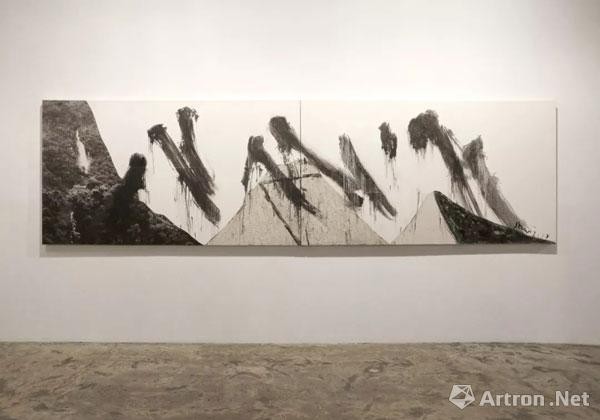
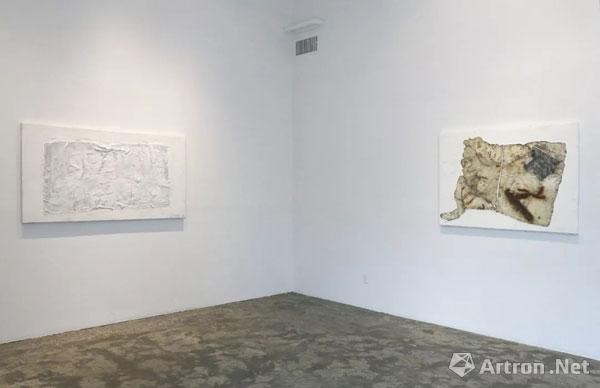
Installation views in Chelsea
Although the two parts of Shang Yang's first exhibition in New York and Salt Point are united thematically, they differ markedly in style and visual approach. As has always been the case, landscape and everything it stands for is the essential subject although now in the second decade of the twentieth century it is a landscape that has been hollowed out, debased by human greed and pride. "Why am I so angry?" he asked rhetorically, "Because in its preference for everything that is flashy and superficial, China is the most extreme example." While Decayed Landscape No. 2 and Decayed Landscape No. 3 are somber reflections on the state of the environment, virtuoso displays of painterly virtuosity which contrast with strategically placed collaged elements, Decayed Books No. 1-4 testify to the decline of culture and political civility in these troubled times.

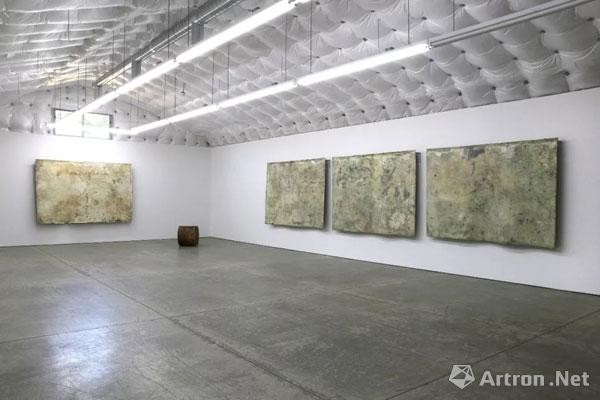
Installation views in ArtFarm
At ArtFarm, visited only by appointment, the exhibition opened on September 16. Jasper Johns, artist; Terry Winters, artist; Bill Katz, art designer and architect; Michael Roberts, executive director of Fine Arts Work Center in Provincetown; Ted Chapin, president of Fine Arts Work Center in Provincetown; Ellen Avril, curator of Asian Art at Herbert F. Johnson Museum of Art in Cornell University; Rebecca R. Hart, Vickiand Kent Logan Curator of Modern and Contemporary Art at Denver Art Museum; Tricia Y. Paik, director of Mount Holyoke College Art Museum; Yao Wu, curator of Asian Art at Smith College Museum of Art; Jin Xu, assistant Professor of Art at Vassar College; Christina Yu Yu, MFA Boston, Matsutaro Shoriki Chair, Art of Asia; James Lally, owner and director of J.J. Lally & Co; Jo Laird, the general counsel of Christie's auction house in New York; Michael Danoof, director of Art Programat Neuberger Berman, professor at NYU; Diane Schafer, art patron of MET; Lilly Wei, art critic, author at ARTnews; Richard Vine, Art in America editor in chief; Candice Madey, owner of On Stellar Rays Gallery; Cristina Grajales & Isabelle Kirshner, owner of Cristina Grajales Gallery; Alejandro Carosso, art dealer and the president of Carosso LLC Fine Arts; Colin Edgington, visual Artist and writer; Jason Edward Kaufman, art journalist and museum consultant; Kimball Higgs, art advisor, director of Winston Art Group; Lucy Kaylin, Editor-In-Chief of O, The Oprah Magazine; Peter Dudek, Sculptor; Robert Klitzman; psychiatrist and bioethicist, professor of psychiatry at the College of Physicians and Surgeons and the Joseph Mailman School of Public Health, and the Academic Director of the Master of Science in Bioethics program at Columbia University; Hilary Chasse, archive manager/program coordinator at Asia Art Archive in America; Jan Rothschild, president of Rothschild & Associates Inc; Megan Connolly, founder of Chart Contemporary Consulting Chart; Luan Qian, director of OCAT Shenzhen, council member of OCAT; Lin Yan, artist; Chaolun Baatar,curator of Art Museum at NYU were present.
At ArtFarm Shang Yang leaves behind not only the rudimentary forms of mountainsand books but also easel painting and the application of pigment and other materials to a flat surface. Here the unifying concept is the cataract, the clouding of the vision that affects many people as they age. In the vertical Cataracts the film comprised of many different synthetic materials is ripped off the canvas and presented as an ineffective relic in a Plexiglas box. The cataracts have been peeled off, but this operation has not resulted in clarification of our vision. Cross-sections of cataracts as in Cataract – Large Section composed of impossible-to-identify mixtures of synthetic and organic materials, hang in front of the wall. Cataract –Unknown Object, fabricated from resin and cellphone, sits on the floor emitting a feeble light at unpredictable intervals. While the atmosphere in the New York section is agitated, in Salt Point it is calm and serene.
Shang Yang is widely known and highly respected in China but nor recognized to the extent that he should be in an international context. To help viewers fully comprehend his works, Chambers Fine Art published a catalogue Shang Yang in conjunction with the current exhibition, including the complete works and installation views, John Tancock's illumination essay, essay of Professor Wang Min'an of Beijing Foreign Studies University and extensive interviews among John Tancock, Christophe Mao and Shang Yang.
微博:前波画廊北京
Instagram:chambersfineartgallerybeijing
电话:+86 (10)52370742
Copyright Reserved 2000-2025 雅昌艺术网 版权所有
增值电信业务经营许可证(粤)B2-20030053广播电视制作经营许可证(粤)字第717号企业法人营业执照
 京公网安备 11011302000792号粤ICP备17056390号-4信息网络传播视听节目许可证1909402号互联网域名注册证书中国互联网举报中心
京公网安备 11011302000792号粤ICP备17056390号-4信息网络传播视听节目许可证1909402号互联网域名注册证书中国互联网举报中心
网络文化经营许可证粤网文[2018]3670-1221号网络出版服务许可证(总)网出证(粤)字第021号出版物经营许可证可信网站验证服务证书2012040503023850号